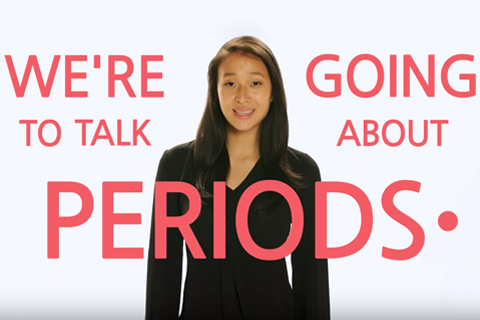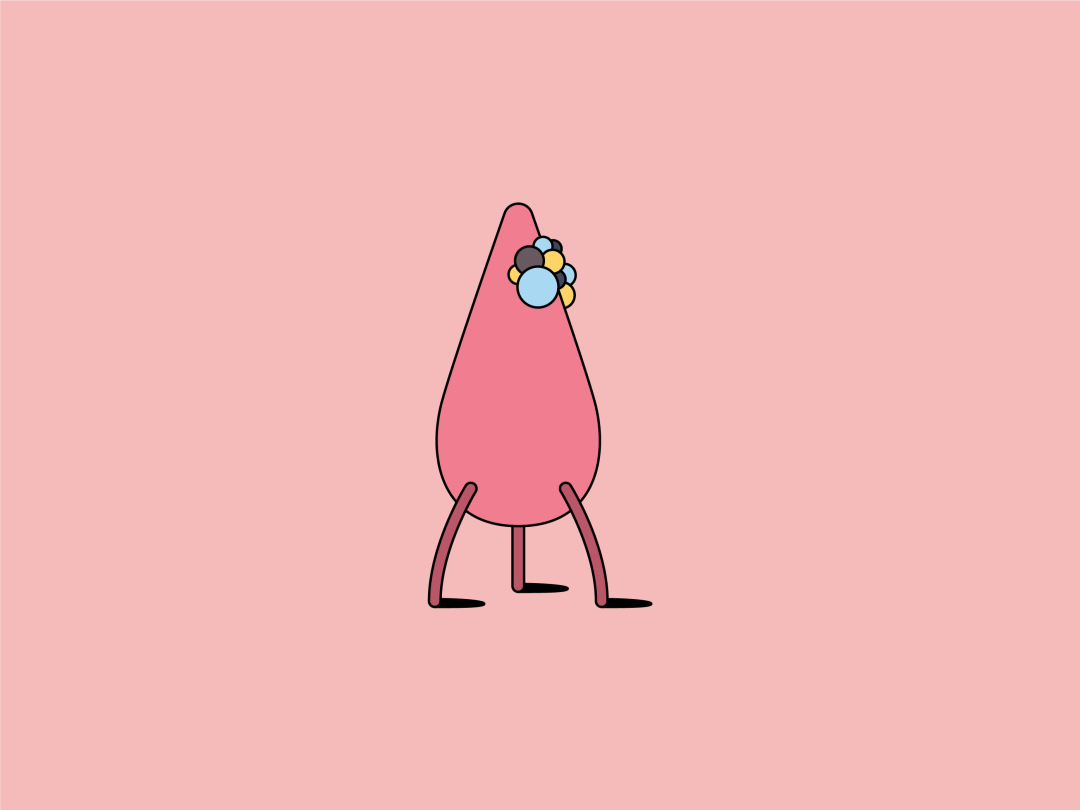Sign up to stay in the loop on new styles and sales!
Sign up to stay in the loop on new styles and sales!
Menstrual Hygiene Access Is Not A Privilege, It's A Right
thinx archive
·5 min read

by Team Thinx | 08/31/2016
By Nadya Okamoto, CEO of Camions of Care
In the spring of my freshman year of high school, my mother lost her job, and within weeks we could no longer afford our home. We had no choice but to move out and enter what I call our “time of transition,” several months of legal homelessness, couch-surfing with our closest friends who have since become family. During this time, my bus commute to school changed from twelve minutes to over two hours each way with two bus transfers. In having conversations with women who were in much worse living situations than I was both on my commutes to school and at the shelter, I had an awakening in acknowledging privilege as a spectrum, and found my purpose in trying to reconcile the ample educational opportunities and leadership potential to address a great need I discovered through those talks: menstrual hygiene.
I recall one conversation specifically, in the fall of my sophomore year of high school, when I was on my way home from mock trial practice and transferring buses in Old Town, Portland. I approached my bus stop, where a woman I regularly saw sat, cozying up for the night. She was friendly, and we had talked regularly when I visited on my way home in the late evenings. I had finally built up the courage to ask her about what she found most challenging. When she told me periods “absolutely sucked” and made her feel “dirty” and “poor,” and I responded by handing her an extra pad from my bag, she began to cry happy tears. She said she was so surprised that someone had felt comfortable to talk to her about periods, and listen to her needs and respond.
In March of my Sophomore year of highschoolhigh school, I found myself in an abusive relationship, and right after my family had gained our apartment back, I found myself sitting on a couch at a battered women’s shelter in downtown Portland. My knees were hugged tightly to my chest, my forehead throbbed, my lips felt chapped, and the left side of my face felt puffy and painful from where I had been hit. My heart was beating fast from the insurgence of anxiety and fear that coursed through my body. At the age of sixteen, I had checked myself into a shelter because I wanted to hide my bruises from my single-mother, who I had witnessed sacrificing so much and work immensely hard to bring our family out of legal homelessness and back into our apartment.
Throughout that point in my life, I was consistently keeping a journal. Almost every night before going to sleep, I would write in my journal about my day and record the stories of many of the homeless women I met. In the weekend I spent at the shelter myself, I realized in looking back at my journal, that I noted menstrual hygiene as a need shockingly often. I had collected an anthology of stories of women using toilet paper, stollen pillowcases, and most commonly brown paper grocery bags, to maintain their periods. I wrote down quotes from the women of how scared they were to ask for menstrual hygiene products because they were embarrassed of their periods, but also how poor menstrual hygiene caused them so much discomfort. I noted how nervous they seemed to chat with me about their periods as if it was a forbidden topic.
I felt guilty victimizing myself as I realized that I had never thought about the issue of menstrual hygiene, because it wasn’t a dire need for me. Earlier on in what I call my “menstrual career,” in seventh grade, I was angered by the amount of waste that came from the wrappers and actual tampons and pads that were usually used to maintain menstrual hygiene. I switched to using menstrual cups earlier on, and because cups are such a sustainable option, I had not worried about replenishing any supply of menstrual hygiene products for years. In talking to these women, I realized that if I didn’t have my menstrual cup, since my family struggled with financial stability, menstrual hygiene products would definitely have posed a significant additional expense.
Especially after my weekend at the battered women’s shelter, I realized how fortunate I was to have access to educational opportunities and still have confidence in my potential, and I knew I had to do something to act upon this unaddressed natural need of menstrual hygiene. I talked to shelters and nonprofits and found that none of the nonprofits I talked to provided menstrual hygiene products continuously, either due to a lack of resources or a lack of displayed need. Thus, there was this never-ending cycle of organizations not prioritizing menstrual hygiene and women in need being too afraid to advocate for it--leaving periods completely unaddressed.
I became obsessed with this unaddressed natural need, and started doing as much research as possible on the problem. On a global level, I learned that periods are the number one reason why girls miss school in developing countries. I also learned that a girl’s first period (menarche), in signifying the official transition from girlhood into womanhood, was the single event that often led to a girl’s dropping out of school, getting married at a very young age, being socially isolated, or worse, undergoing female genital mutilation. I learned that in Kenya, girls miss an average of 4.9 days of school each month because of a lack of access to adequate menstrual hygiene. In rural Uganda, girls miss up to the 8 days of school each term. That is almost a full week of class. 25% of one’s school month. Think about that…because of periods, girls are missing almost a whole quarter of their classes. In India, 70% of reproductive diseases are caused by poor menstrual hygiene, and the effects can go so far as to affect maternal mortality.
When it comes to global development, in working to advance families and break the cycle of poverty, women’s empowerment is the key—and a major obstacle that stands in the way of bringing all women to the forefront is the taboo surrounding the topic of menstruation. I knew I had to do something to make menstrual hygiene more accessible for all women and girls, no matter their circumstances. After my family regained stability, in the spring of my sophomore year of highschool, I founded Camions of Care.
Camions of Care is now a youth-run global nonprofit that celebrates menstrual hygiene through advocacy, youth leadership, and service. We do this through two major programs at the moment: (1) the global distribution of menstrual hygiene products; and (2) the engagement of youth leadership through a nationwide network of campus chapters. Youth leadership is a component that is an integral part of identity. As an organization, we acknowledge the powerful potential held by youth as the leaders of our future. In the last two years we have addressed over 25,000 periods through over 40 nonprofit partners in 17 states and 9 countries. We continue to expand our chapter network from 34 established at universities and high schools around the United States. My business partner and one of my best friends, Vincent Forand, maximized the extensive impact or our organization so that for every dollar that is donated to our organization, we are able to provide another woman or girl in need with everything she needs for an entire menstrual cycle. Every contribution makes a significant difference and goes directly to serving women and girls in need. We are constantly hoping to grow our network of advocates for our menstrual movement, and always welcome helping hands, eager supporters, or inspired youth leaders wanting to take initiative with our cause themselves. We hope you join us in our fight to de-stigmatize menstrual hygiene and our journey to make menstrual hygiene more accessible for women and girls no matter their circumstances.
Running Camions of care has fueled the fire within me to enact systemic social change, especially around women’s health. This fall I’ll be starting my freshman year at Harvard, where I plan to study political science and public health. I will also be a Thinx Brand Ambassador on the Harvard campus. I am proud of the work we’ve been able to do, and excited to keep growing Camions of Care into a sustainable menstrual equity organization, and growing personally into an impactful women’s health advocate. You can get involved with Camions of Care by starting a chapter with other youth from your area and start a menstruation station at your school to make feminine hygiene products more accessible! Collect items with a feminine hygiene product drive. Contribute to our cause. Spread word about our organization by sharing our videos. Every amount of support makes a difference and we hope you join our #menstrualmovement.
by Team Thinx


